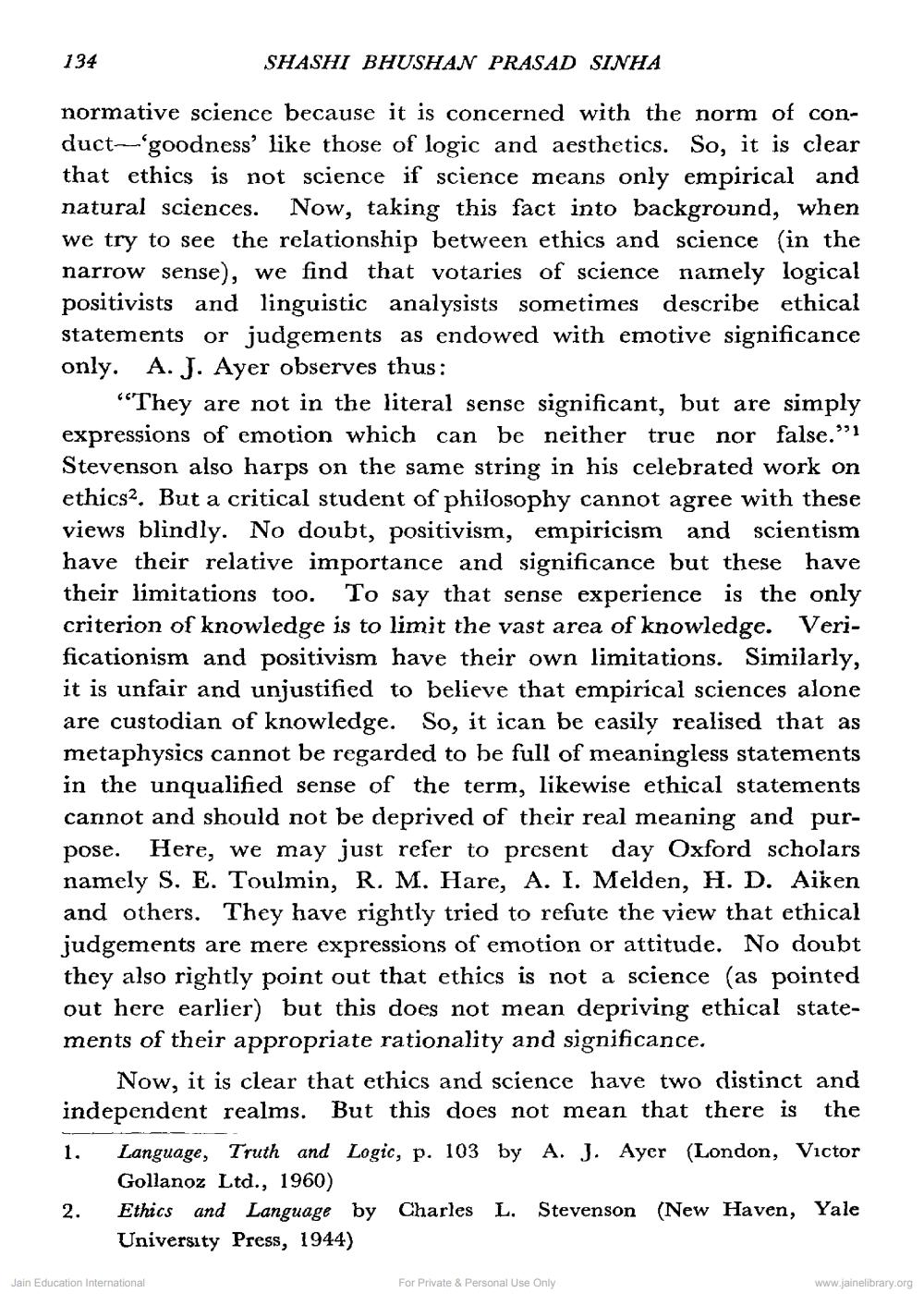________________
134
SHASHI BHUSHAN PRASAD SINHA
normative science because it is concerned with the norm of conduct-'goodness' like those of logic and aesthetics. So, it is clear that ethics is not science if science means only emp
nce means only empirical and natural sciences. Now, taking this fact into background, when we try to see the relationship between ethics and science (in the narrow sense), we find that votaries of science namely logical positivists and linguistic analysists sometimes describe ethical statements or judgements as endowed with emotive significance only. A. J. Ayer observes thus:
“They are not in the literal sense significant, but are simply expressions of emotion which can be neither true nor false.” Stevenson also harps on the same string in his celebrated work on ethics2. But a critical student of philosophy cannot agree with these views blindly. No doubt, positivism, empiricism and scientism have their relative importance and significance but these have their limitations too. To say that sense experience is the only criterion of knowledge is to limit the vast area of knowledge. Verificationism and positivism have their own limitations. Similarly, it is unfair and unjustified to believe that empirical sciences alone are custodian of knowledge. So, it ican be easily realised that as metaphysics cannot be regarded to be full of meaningless statements in the unqualified sense of the term, likewise ethical statements cannot and should not be deprived of their real meaning and purpose. Here, we may just refer to present day Oxford scholars namely S. E. Toulmin, R. M. Hare, A. I. Melden, H. D. Aiken and others. They have rightly tried to refute the view that ethical judgements are mere expressions of emotion or attitude. No doubt they also rightly point out that ethics is not a science (as pointed out here earlier) but this does not mean depriving ethical statements of their appropriate rationality and significance.
Now, it is clear that ethics and science have two distinct and independent realms. But this does not mean that there is the 1. Language, Truth and Logic, p. 103 by A. J. Ayer (London, Victor
Gollanoz Ltd., 1960) 2. Ethics and Language by Charles L. Stevenson (New Haven, Yale
University Press, 1944)
Jain Education International
For Private & Personal Use Only
www.jainelibrary.org




